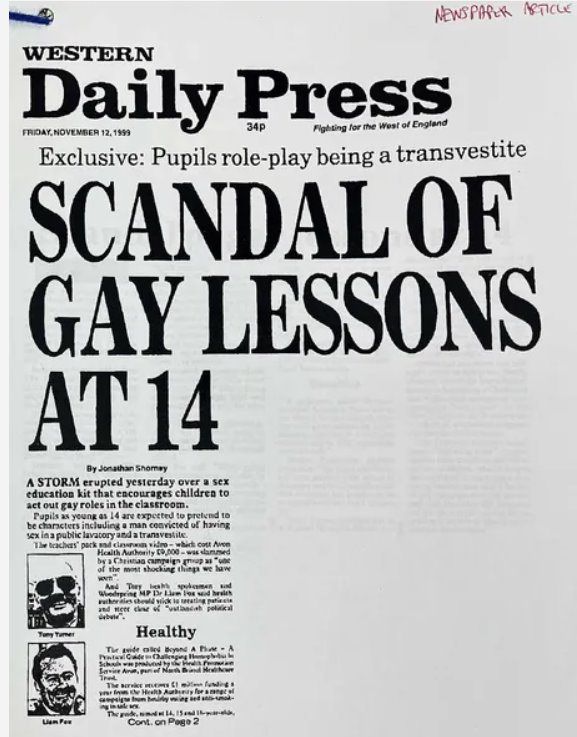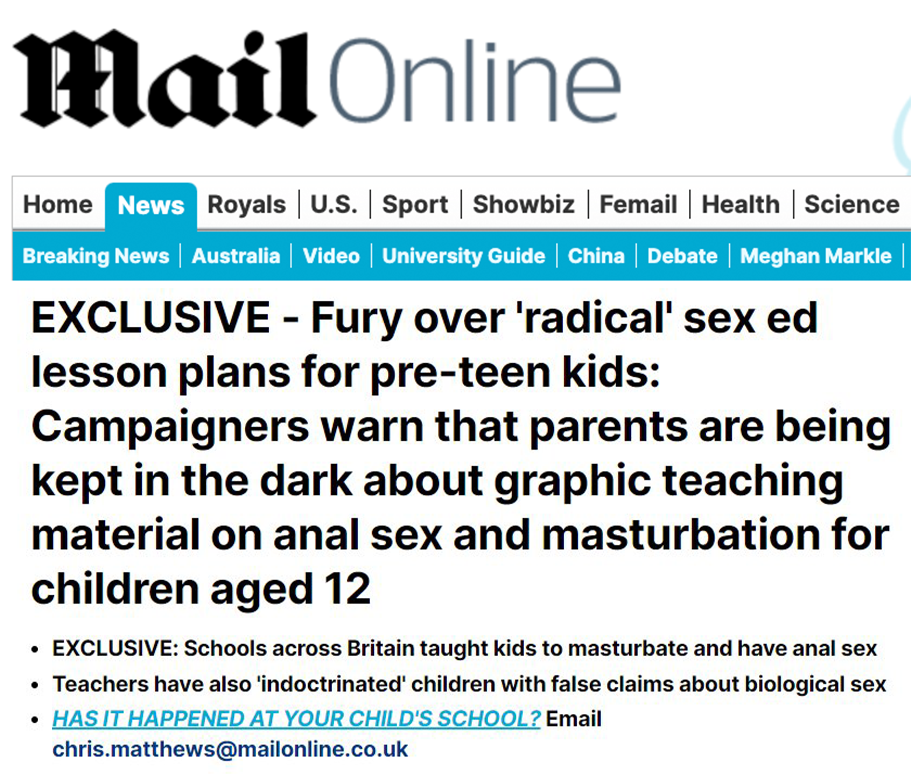Amnesty International UK response to the draft revised Relationship and Sex Education guidance
The previous government opened a consultation on proposed changes to the guidance on Relationship and Sex Education (RSE). The consultation is open until 11th July and it is essential to share your view.
Why is this important?
The previous government is proposing to introduce age restrictions on what topics can be discussed and ban conversations about gender identity.
There is no solid evidence for the need to change the guidance and children and young people have not been able to participate in this process.
We are extremely concerned about the previous government’s relentless anti-LGBT+ rhetoric, targeting trans people and fighting a phantomatic ‘gender ideology’. This attempt to restrict Relationship and Sex Education it’s just a further step in this direction.
This is not just important for LGBT+ children, restrictions will affect all children. We are a long way away from ensuring all girls can be safe at school. Misogyny is rampant and risks being normalised, and peer sexual abuse is rife in schools. Pupils with special education needs tend to be excluded from RSE and the specific challenges Black students and students of colour face are not addressed. This revised guidance, rather than improving RSE, would harm all children.
RSE is a human rights issue
RSE is a vital part of children’s right to education, it shouldn’t be considered any different from studying grammar or maths. It is also critical to challenge gender stereotypes that underpin misogyny and violence against girls and women.
Too often RSE is singled out as a part of education children can access only if parent's consent to it. Myths and disinformation about RSE abound. There is a misconception that younger children should not have access to RSE, but the capacities of a child are not limited just because of their age. The Convention on the Rights of the Child is clear that children have evolving capacities and age cannot be the rationale for excluding them from RSE. RSE is necessary to keep young children safe from harm and teach them what is acceptable or not in relationships. The evidence is clear that for RSE to be effective it must start early and respond to the real challenges children and young people face in life. RSE must be adequate for the evolving capacity of children. Teachers are best placed to assess the level of maturity of their students and deliver RSE accordingly.
Arbitrary age restrictions are counterproductive: providing information as late as possible means putting children at risk of experiencing or perpetrating violence.
While students’ satisfaction with RSE has grown over the years there is still a lot of work to do. The government should provide guidance and adequate resources for teachers to deliver the best RSE possible, tackling the complex challenges that children and young people navigate daily. Instead, this revised guidance will be harmful for all children.
We have seen all of this before
Many of you may be too young to remember it but this looks very much like Section 28, a law established in 1988 which prohibited the ‘promotion of homosexuality’. LGBTI people who grew up in the Section 28 era could not be openly themselves and were deprived of learning about LGBTI history and role models. Bullying and discrimination thrived during Section 28, LGBTI teachers had to hide themselves too and were not able to openly challenge bullying and support their students.
Protests and campaigning finally brought Section 28 to an end in 2003. Since then, we have made huge progress for LGBTI rights: protections from discrimination in the Equality Act, the Gender Recognition Act, civil partnerships and equal marriage. Nonetheless, over 20 years since Section 28 ended the UK is losing its status as a champion for LGBTI equality and people in power are using old tropes about the need to defend children from moral corruption to limit the rights of LGBTI people.


What can you do?
Silence and restrictions pose a real risk to children and young people’s safety. It’s important to speak up against these proposals. There’s time to respond to the consultation until 11th July. You can share your views by filling in an online survey on the Department for Education website. At the bottom of the page, you find the proposed changed draft guidance. However, the guidance is not accessible or child friendly which poses another barrier for young people to have a say in something so important for their life.
You can find Amnesty International UK’s response here. We have replied to the most important questions from a human rights perspective and suggest checking out the guides developed by Brook and the Sex Education Forum as well. The best thing you can do is to avoid copying/pasting and respond in your own words. Tell your experience of RSE in school as a student, a teacher or a parent. These are the most powerful testimonies that can shape the conversation on RSE.
There’s time until 11th July to have your say.
Our key messages:
- RSE is a human right and a key part of children’s right to education, information, privacy, to be free from violence and discrimination. It should be seen as any other subject at school, like grammar or geography. There is plenty of evidence that RSE keeps children safe and helps eradicate harmful gender stereotypes that underpin violence against women and girls.
- To be effective RSE must start early and respond to the daily challenges children and young people face. Teachers are best placed to tailor the curriculum to their students. Arbitrary age restrictions will not help schools to deliver high-quality RSE and risk harming children. Providing information as late as possible means putting children at risk of experiencing or perpetrating violence.
- RSE must reflect the world we live in and be inclusive. We categorically condemn restrictions on talking about LGBTI families and the ban on discussing gender identity. These measures are discriminatory and withdrawing information on a topic because it’s complex sets a dangerous precedent for any approach to education.
- The development of the 2019 guidance involved input from a wide range of education, health, faith, domestic violence and safeguarding organisations. The current proposal has excluded experts and practitioners, parents but especially children and young people, who are the most affected by RSE. Solid evidence and the participation of children and young people must be at the heart of any future review.
What happens next?
The responses to the consultation will be on the desk of the new Secretary of State for Education who will decide what to do next. Amnesty International UK recommends that the new government scraps this draft revised guidance and commits for any future review be informed by evidence, take a human rights-based approach and, most importantly, listen to children and young people.